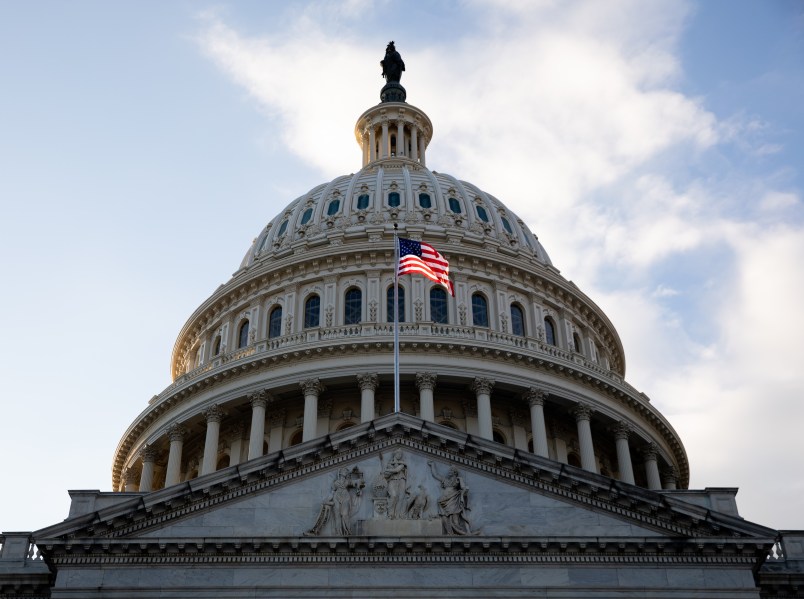WASHINGTON (AP) — The federal government recorded a budget surplus in January. But so far this budget year, the total deficit is 77 percent higher than the same period a year ago.
The Treasury Department said Tuesday that the deficit for the first four months of this budget year, which began Oct. 1, totaled $310.3 billion. That’s up from a deficit of $175.7 billion in the same period a year ago. The surplus in January was $8.7 billion.
The higher deficit reflected greater spending in areas such as Social Security, defense and interest payments on the national debt. Meanwhile, the government collected lower taxes from individuals and corporations, reflecting the impact of the $1.5 trillion tax cut President Donald Trump pushed through Congress in 2017.
Individual income taxes withheld from paychecks total $818 billion for the October-January period, down 3 percent from the same period last year. Corporate income taxes total $73 billion over the four-month period, down 23 percent.
Revenue, however, is up is in tariffs — border taxes collected on imports — which totaled $25 billion in the October-January period, up 91 percent from the same period a year ago. This reflects the higher tariffs the Trump administration has imposed on China and other nations in various trade disputes.
The border taxes are not paid by the countries where the goods are being produced but rather by the U.S. companies importing the products into the United States. Those costs are generally passed on to American consumers.
The $8.7 billion surplus in January was down from a larger $49.2 billion surplus in January 2018. January, a month when both individuals and corporations make tax payments, has run surpluses in 26 of the past 65 years.
The Congressional Budget Office is projecting that this year’s deficit will hit $897 billion, up 15.1 percent from the $779 billion deficit recorded last year. In the CBO’s projections for the next decade, it forecasts that the deficit will once again top $1 trillion annually beginning in 2022 and will never fall below $1 trillion over the rest of the forecast period.
From October through January, government revenues total $1.11 trillion, down 1.7 percent from the same period a year ago. Government spending totals $1.15 trillion, up 8.8 percent from the same period a year ago.
On March 2, the government’s debt limit, which had been suspended, went back into effect at the current $22 trillion level of debt. Treasury Secretary Steven Mnuchin has begun taking actions, such as halting investments in civil service pension funds, to keep from exceeding the debt ceiling.
CBO has estimated these various maneuvers will keep the government operating without threatening a devastating default on the government debt until probably September.







The media will blame the Democrats.
Watch them and weep.
Who knew such a big, beautiful tax cut would yield such a gigantic, ugly mess?
Cable News Response: “What was that about hats again?”
(h/t Executive #3)
“Treasury Secretary Steven Mnuchin has begun taking actions, such as halting investments in civil service pension funds,”
Of course.
Of course. Everything was fine October through December but it only took the Democrats one month to turn it all upside down, and they did that while only controlling the House. Imagine how much worse it would be if they took control of the Senate.